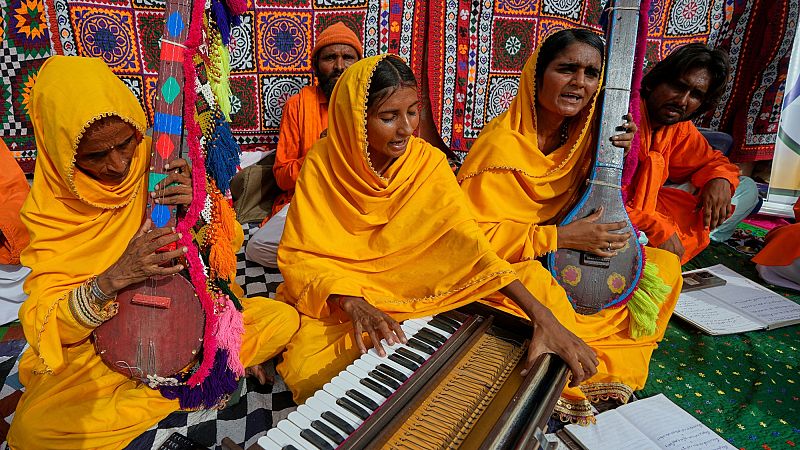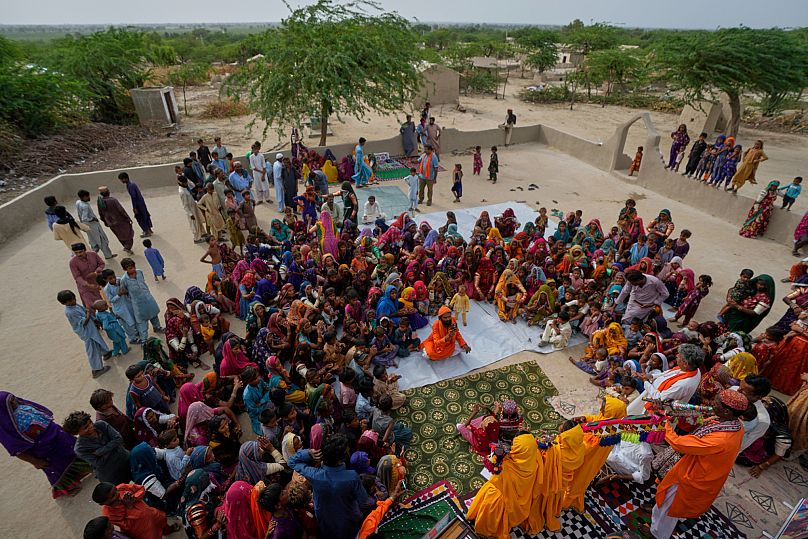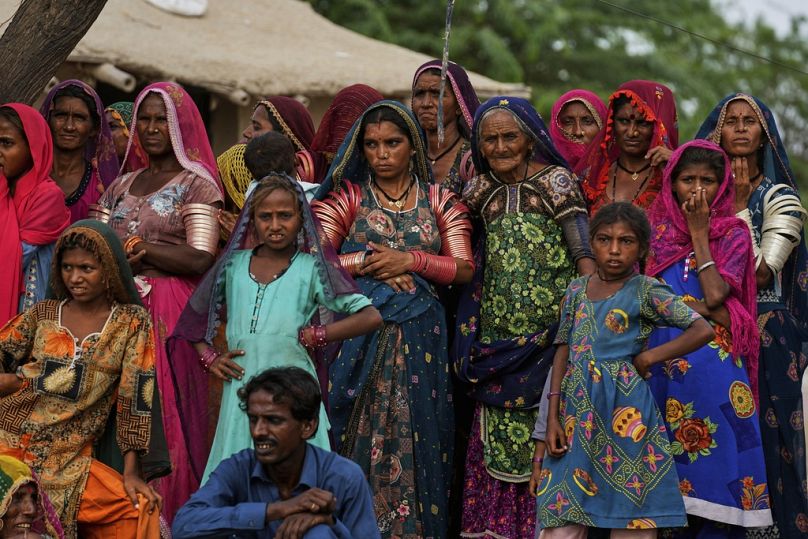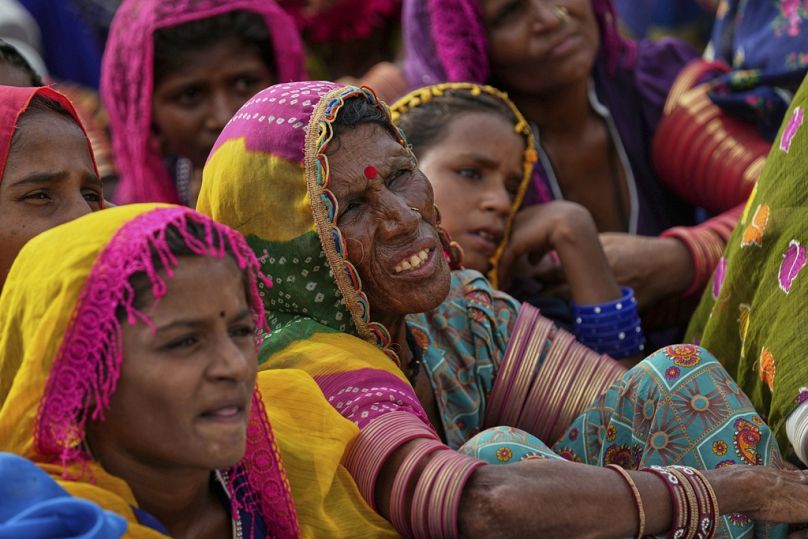
When Sham Bhai begins to sing, a hush falls over the village. Her clear, steady voice drifts across the dusty lanes and mud homes, carried by the same wind she sings about - winds that now come earlier, harder, hotter.
“We are the people of the south," she sings in Sindhi, her native tongue. "The winds seem to be blowing from the north. The winds seem cold and warm. My heart is burned from seeing the collapsed houses in the rain. Oh, beloved, come home soon.”
Sham, 18, is no ordinary singer. She’s part of a growing wave of women using music - both traditional and modern - to sound the alarm on climate change in Pakistan’s most vulnerable regions.

Born in Sindh, the province worst-hit by the 2022 floods that drowned entire communities and displaced millions, she’s spent the past two years travelling from village to village, turning climate science into song.
“When we give a message through song, it is easy to communicate to people because they understand it,” says the 18-year-old singer.
Accompanied by two other singers, she opens every performance with familiar, upbeat tunes - a hook, she says, to draw in the crowd - before easing into mournful ballads about flooding, displacement and climate grief.
And her music is having an impact: “People are acting on our advice; they are planting trees and making their houses strong to face climate change,” said Sham. “Women and children suffer a lot during bad conditions, which damage their homes.”
Rap as resistance
While Sham draws from centuries-old folk traditions, rapper and activist Urooj Fatima -known as Sindhi Chhokri - is using hip-hop to speak out.
“We can engage a lot of audiences through rap. If we go to a village and gather a community, there are a maximum of 50. But everyone listens to songs. Through rap, we can reach out to hundreds of thousands of people through our voice and our message" she says.
Urooj turned to music after her own home was devastated by flooding - once in 2022, again in 2024. In a country where hip-hop remains niche and female rappers are virtually unheard of, she’s built a platform by tackling taboo topics: women’s rights, corruption, climate injustice.
Her most searing track - written in the aftermath of the 2022 deluge in neighbouring Balochistan - does not shy away from politics: “There are potholes on the road; the roads are ruined,” raps Urooj. “I am telling the truth. Will your anger rain down on me? Where was the Balochistan government when the floods came? My pen thirsts for justice. Now they’ve succeeded, these thieving rulers. This isn’t a rap song, this is a revolution.”


Performed at festivals and shared widely on social media, the song put her on the map. She now campaigns full-time with her sister, Khanzadi, planting trees, visiting remote communities, and pushing local governments to do more.
Climate change, she argues, hits women hardest. They are the ones fetching water, tending livestock, raising children, navigating displacement. And when disaster strikes, they are the first to go hungry, the last to be heard.
“For women, there are no opportunities or facilities. And then, if a flood comes from above, they face more difficulties.”
In rural Sindh, where the literacy rate hovers around 38%, music has become a lifeline for climate awareness. It bypasses language barriers - like the fact that most people here speak Sindhi, not Urdu - and delivers crucial information in ways people can relate to and remember.







